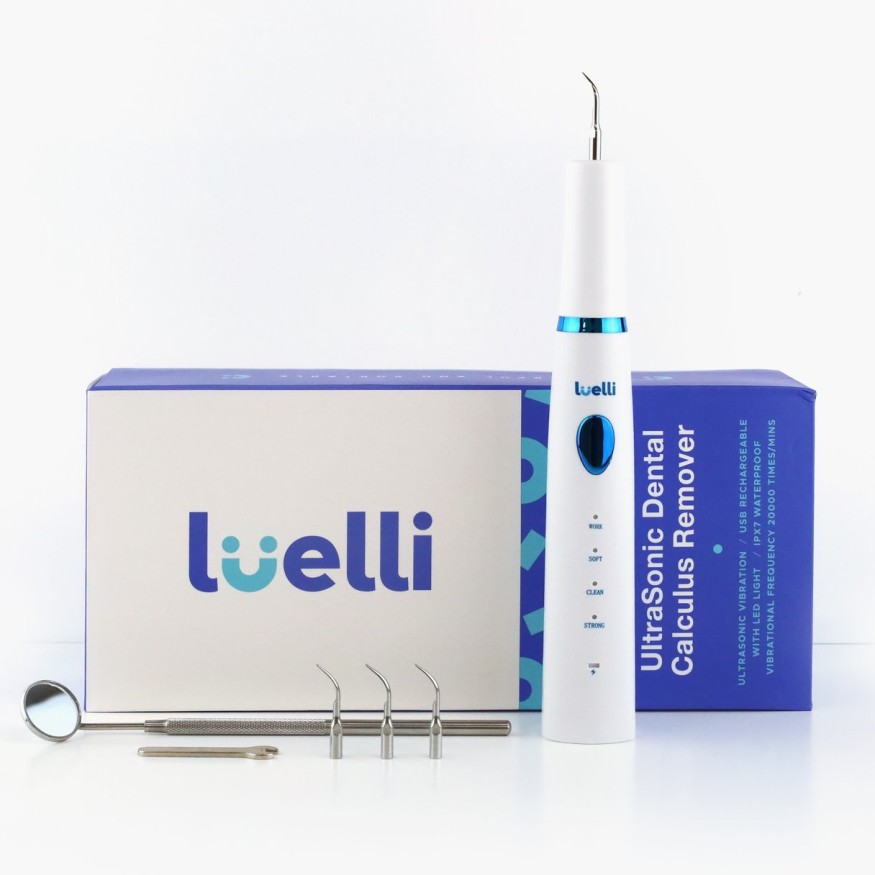Dental hygiene can help you avoid foul breath and gum disease. Brushing and flossing regularly and seeing a dentist twice a year for basic tooth cleanings are essential.
A dentist may, however, recommend deep teeth cleaning. Bleeding gums, receding gums, and loose teeth are all signs that you may need a comprehensive cleaning. Deep cleaning, also known as periodontal scaling or root planing, is popular, but it comes with hazards.
The majority of dental practitioners are also familiar with ultrasonic technology. The usability of the existing products makes it practical for each of them to have one. But some use the Luelli teeth whitening kit called Ultrasonic Dental Calculus Plaque Remover.

Here's everything you need to know about ultrasonic scalers, including the drawbacks.
What is an Ultrasonic Scaler?
Water's Edge Dental said scaling has traditionally been done with a metal instrument. While this instrument might be useful, it can also be painful and cause further harm to your gum tissue as it pushes across your teeth. The ultrasonic scaler is the result of technological advancements over time. Low-frequency soundwaves vibrate on your teeth with this gadget, efficiently eliminating stubborn tartar buildup.
Ultrasonic scalers come in two varieties. The magnetostrictive model moves the head in a circular motion at 25,000 to 30,000 cycles per second. The tip of the piezoelectric scaler vibrates back and forth against the tooth 28,000 to 36,000 times per second. The antibacterial rinse can be delivered below your gums. At the same time, it works with ultrasonic scalers because they have a built-in sprayer.
Benefits Of Ultrasonic Scaling
With the introduction of ultrasonic scalers, we are now better equipped to treat your gum disease effectively and completely, allowing your gums to heal. There are various advantages to using an ultrasonic scaler, Park South said.
The following are the top three reasons to choose a dentist that offers ultrasonic cleaning:
More Comfortable: There is no metal scraping or other harsh sounds or sensations;
More Efficient: Ultrasonic cleaning is more efficient than other scaling methods since it takes less time;
More Effective: This innovative dental system effectively cleans plaque beneath the gum line, preventing and treating gum disease. It can also help to lighten the appearance of stains on the teeth.
Meanwhile, CADental said the biggest downside or disadvantage of ultrasonic cleaning is that the vibrations from the tools can make it challenging for the dental hygienist to tell if all of the tartar has been removed from a tooth's root. Ultrasonic cleaning may not be appropriate for people who have sensitive teeth or restorations.
Using the most up-to-date dental equipment ensures a more pleasant and gratifying experience, whether you're in for a simple cleaning or a more involved dental operation. Patients with gum disease or excessive plaque buildup should ask first about ultrasonic scaling with their dentist.
When Not to Use Ultrasonic Scaler
Oregon Dentist said it's crucial to let our dental team know if you have a pacemaker before treatment begins because some ultrasonic scalers can interfere with pacemakers. Most current pacemakers, on the other hand, are insulated, and this is only a precaution to ensure your safety throughout therapy.
People with susceptible teeth, newly erupted teeth, or teeth that are sensitive to temperature fluctuations may choose to have their teeth scaled by hand. If you're not sure if your teeth are sensitive, don't worry; your dentists will keep an eye on you throughout treatment, and if you experience any discomfort, you can stop any treatment at any time by just raising your hand.
Can Ultrasonic Scaler Destroy Teeth?
A study titled "Effects Of Ultrasonic Instrumentation on Enamel Surfaces With Various Defects," claimed that ultrasonic scaling could worsen enamel cracks, early caries, and resin restorations on teeth. To avoid harm, an accurate diagnosis of tooth problems and calculus is required before using ultrasonic scaling.
RELATED ARTICLE : Yellow Teeth: Experts Reveal Causes and How to Get Rid of Discoloration
Check out more news and information on Oral Health in Science Times.











